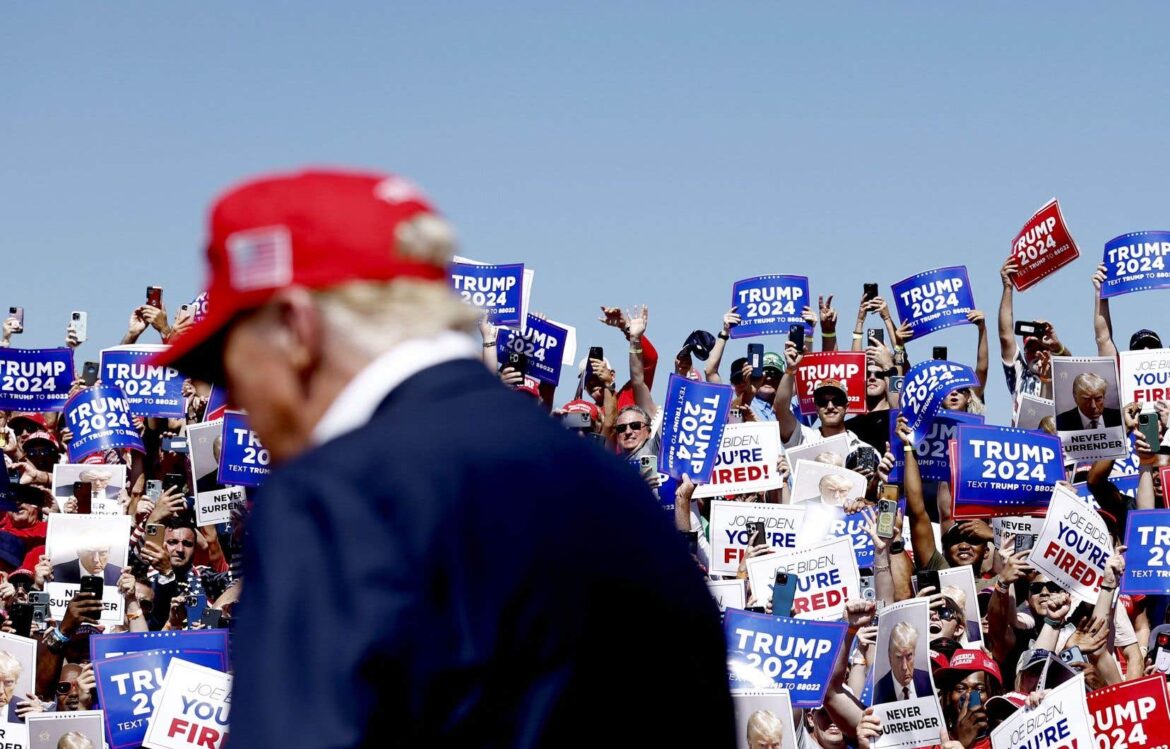The U.S. Supreme Court ruled Monday that former President Donald Trump is immune from prosecution for official acts he performed while in office, but not for those he didn’t. The 6-3 decision split the justices along ideological lines. Here’s what you need to know about the decision.
What is presidential immunity?
Broadly speaking, this is the legal theory that past and present presidents enjoy some protection from lawsuits. In the context of Monday’s Supreme Court ruling, it’s the decision that Mr. Trump and others are immune from lawsuits for actions taken in the exercise of their “essential constitutional powers” and are entitled to a presumption of immunity for their official acts. This immunity does not apply to private or unofficial acts.
Supreme Court Chief Justice John G. Roberts Jr. said presidential immunity was necessary to ensure a “vigorous and independent executive branch” and to avoid an executive branch that “cannibalizes itself, with each president free to prosecute his predecessors but unable to discharge his duties boldly and fearlessly for fear of being the next to be prosecuted.”
However, the majority opinion said the government could waive the presumption of immunity for the official acts of a former president if it could show that the prosecution under a particular action did not impinge on “the authority and functions of the executive branch,” the report said. Washington Post.
What did the Supreme Court define as “official” versus “unofficial” acts?
The Supreme Court has ruled that a president’s official duty can extend to all actions as long as they do not “manifestly or palpably” exceed his authority.
It said the official conduct for which Mr. Trump is immune from prosecution includes his discussions with Justice Department officials in the wake of the 2020 presidential election, in which he sought to convince them to vigorously support unfounded allegations of election fraud.
While Mr. Trump’s attempts to pressure Vice President Mike Pence to change the election results may be considered official conduct, for which he is “presumptively immune,” prosecutors could still argue that a charge related to communications with the vice president about the certification of Joe Biden’s victory does not impinge on executive branch functions, the Times reported. Post.
Mr. Trump’s interactions with state officials and private citizens during his efforts to overturn the results of the 2020 election “cannot be categorized as official conduct,” the Supreme Court’s majority opinion said. The court ordered the Washington, D.C., district court to “determine in the first instance … whether Mr. Trump’s conduct in this area can be characterized as official or unofficial.”
Most “public communications by a president are likely to fall comfortably within the bounds of his official responsibilities,” meaning they are covered by immunity, the justices also said.
What does the presidential immunity decision mean for Trump?
In the short term, the ruling favors Mr. Trump in the election interference lawsuit filed against him in Washington, which gave rise to his request for review of presidential immunity, which gave rise to Monday’s decision.
The case in the U.S. District Court in Washington, D.C., in which Mr. Trump faces four counts related to the charge that he conspired to overturn the January 6 election, has been significantly affected by the Supreme Court’s decision and will now be delayed. The judge must determine which acts were “official,” and therefore immune from prosecution, and which were “unofficial,” and could be prosecuted. That decision is highly unlikely to come before the November election.
As for the two other criminal cases against Mr. Trump, the ruling could also affect his election interference case in Georgia. It is unclear whether it will affect his case in Florida, over classified documents found at Mar-a-Lago after he was president. Finally, his lawyers have already appealed his conviction in New York for concealing a secret payment to an adult film actress shortly before the 2016 election.
More broadly, critics of the Supreme Court ruling, including President Joe Biden, have warned that Mr. Trump could become emboldened in a possible second term, knowing that he would enjoy immunity for actions that previously would have exposed him to prosecution.
What was the opinion of the dissenting judges?
The court was divided along ideological lines, with the conservative majority — Chief Justice John G. Roberts Jr. and Justices Clarence Thomas, Samuel A. Alito Jr., Amy Coney Barrett, Neil M. Gorsuch and Brett M. Kavanaugh, the last three of whom were appointed by Mr. Trump — siding with the former president. On the other side, liberal Justices Sonia Sotomayor, Ketanji Brown Jackson and Elena Kagan dissented.
In a scathing dissent, Justice Sotomayor listed a list of actions she said would be protected by the ruling, including a president staging a military coup, assassinating a rival or accepting a bribe in exchange for a pardon. The “deeply flawed” decision “reshapes the institution of the presidency” and “makes a mockery of the principle, fundamental to our Constitution and our system of government, that no man is above the law,” she wrote.
“The long-term consequences of today’s decision are very serious,” she argued, adding: “In every use of official power, the president is now a king above the law.”



